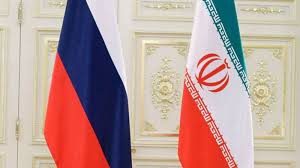By FT reporters
Greece plans to hold a referendum on whether it should remain in the euro, sources close to the ruling party said, in the latest twist in Europe’s sovereign debt crisis ahead of a summit of world leaders in France.
The details of the Greek plan came after renewed market volatility forced the postponement of a €3bn bond sale by the region’s bail-out fund, highlighting investor concerns over the prospects for deal agreed last week to address Europe’s sovereign debt crisis.
Markets have seen sharp falls since George Papandreou, Greece’s prime minister, stunned his fellow European leaders by announcing on Monday that he would offer hard-pressed Greeks a plebiscite in the wake of the agreement between EU leaders and Greece’s creditors.
Sources close to the ruling Pasok socialist party told the Financial Times on Wednesday that voters would be asked not to approve or reject the terms for Greece’s next financial rescue but to vote on a broader question centred on support for Greece’s membership of the European Union and 17-nation eurozone.
The government plans to hold the referendum in mid-December. However, it will go ahead only if the government survives the confidence vote, expected to be held late on Friday.
European policymakers fear that the referendum plan could undermine efforts to avoid a disorderly default on Greek debt, potentially worsening the pressure on other heavily indebted eurozone countries, partiularly Italy.
One senior European official said: “I have no words to describe what I feel regarding Greece. A country in this kind of situation and they are making politics. Not only are they putting at risk their country, which I think is incredible, but they are putting at risk the euro area stability, and this is too much.”
Renewed uncertainty over the eurozone’s prospects has dominated preparations for the Group of 20 summit in Cannes, which begins on Thursday.
Investors’ unease was apparent on Wednesday when the European financial stability facility was expected to issue 10-year bonds to fund Ireland’s bail-out, but halted the deal at the last minute for a lack of buyers.
One investor said: “This is a fund that is supposed to have the fire-power of €1 trillion, yet it can’t even raise €3bn. That is very worrying.”
Angela Merkel, Germany’s chancellor, and Nicolas Sarkozy, France’s president, summoned Mr Papandreou for emergency talks on Wednesday with Christine Lagarde, managing director of the International Monetary Fund, and the heads of leading European institutions, ahead of the start of the G20 summit.
In a joint communiqué, issued on Tuesday, the French and German leaders said they were “determined to ensure the implementation without delay of the decisions adopted at the eurozone summit”, saying they were “more necessary than ever today”.
The markets remained volatile on Wednesday with the European Central Bank forced to intervene and buy Italian bonds, said traders. The ECB bought an estimated €1bn to €2bn of Italian bonds by midday in London. Italian 10-year bond yields are only just below 6.5 per cent – levels considered unsustainable by markets.
As part of the agreement the EFSF would be expanded by four times to a value of about €1,000bn ($1,380bn) and provide “risk insurance” to new bonds issued by struggling eurozone countries.



















